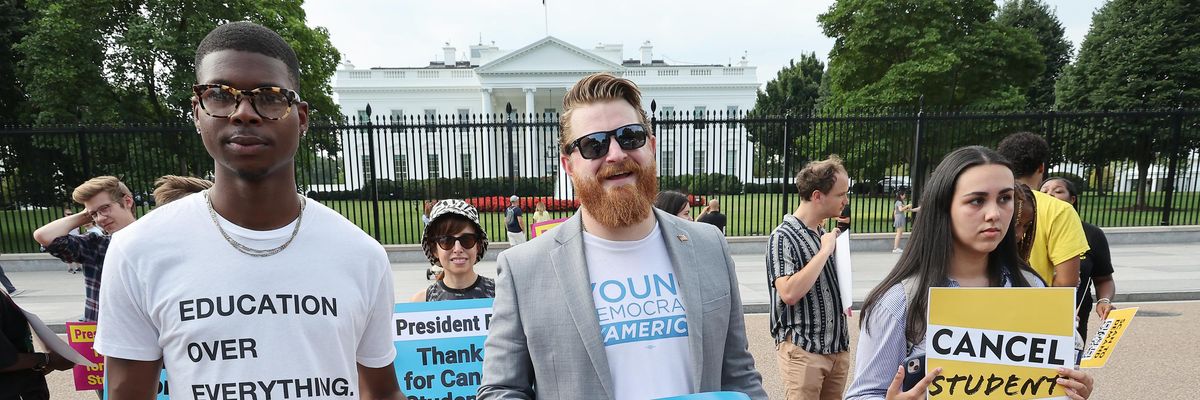The first lawsuit challenging President Joe Biden's plan to cancel some student loan debt for low- and middle-income Americans is based on an erroneous claim about the program, said the White House on Tuesday as other critics decried the suit as a "publicity stunt."
Frank Garrison, a lawyer at the right-wing Pacific Legal Foundation, filed a lawsuit in the U.S. District Court for the Southern District of Indiana arguing that Biden's debt cancellation plan will have "untold economic impacts" on Americans like him and claiming he will now be forced to have his student debt canceled and then taxed.
Garrison lives in Indiana, one of seven states that have said they may tax canceled student debt. The lawyer had planned to have his student debt wiped out through a program that benefits public service employees, in which case the debt would not have been taxed as income.
While Biden's plan may automatically cancel the debt of up to eight million borrowers, the White House pointed out Tuesday that no one--including Garrison--will be forced into the program.
"Anyone who does not want debt relief can choose to opt out," White House spokesperson Abdullah Hasan toldThe New York Times. "Why would this group bring this baseless claim? Because opponents of the debt relief plan are trying anything they can to stop this program that will provide needed relief to working families."
Pacific Legal Foundation admitted to the Times that their case will be "harder to argue" if Garrison and others can opt out.
The lawsuit comes a month after Biden announced, following years of campaigning by grassroots organizers, a relief program to cancel $10,000 in student loan debt for people who earn less than $125,000 per year and additional relief for people who received Pell Grants. Right-wing opponents of student debt relief have claimed Biden does not have the authority to cancel the debt, but economists and legal experts agree that Section 432(a) of the Higher Education Act allows him to direct the Department of Education to do so.
Garrison's lawsuit also follows the Congressional Budget Office's (CBO) analysis of the plan, which found it will cost a mere $400 billion over the course of three decades, compared to the $2 trillion in tax breaks former Republican President Donald Trump handed to corporations and the $839 billion annual defense budget that was approved by the U.S. House in July.
Contrary to Garrison's claims about negative economic impacts of Biden's plan, economists estimate the country's real gross domestic product could be increased by at least $86 billion per year by student debt relief.
Barmak Nassirian of Veterans Education Success dismissed the lawsuit as a "transparently frivolous publicity stunt," while University of Alabama law professor Luke Herrine noted right-wing legal groups searched far and wide for plaintiffs for a case against the plan but "could only find a suitable plaintiff on its own staff."
"Others are either happy to have this relief or ineligible for standing," he said.
Polling released earlier this year showed that 63% of Americans supported student debt relief, including 83% of Democrats, 59% of Independents, and 41% of Republicans. Young voters' approval of Biden also soared after he announced the program in August.
